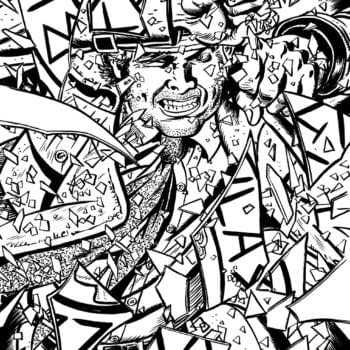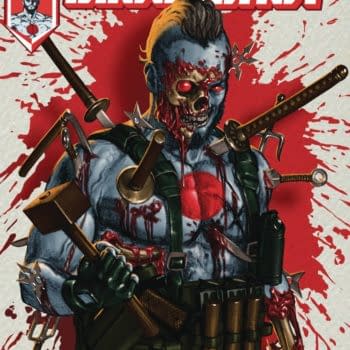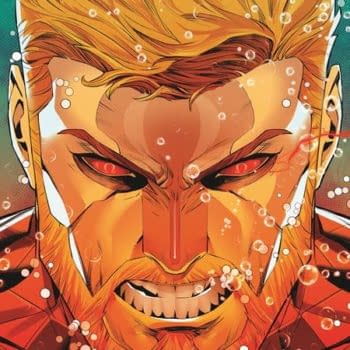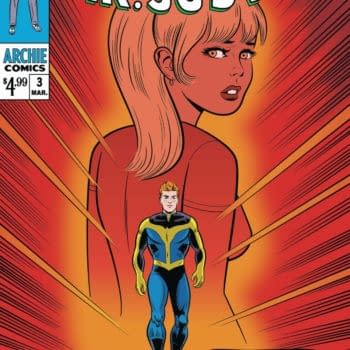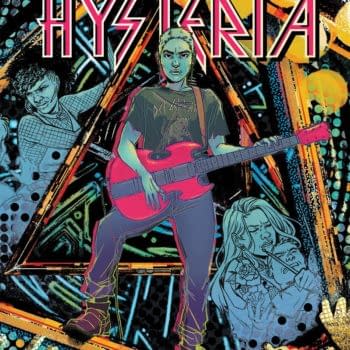Posted in: Recent Updates | Tagged:
Michigan State University's History Of The Modern Comic Book #1 By Professor Ethan Watrell
A few weeks ago I ran an article on an upcoming class at Michigan State University on the History of the Modern Comic Book that actually seemed to tackle its full history with intelligence and insight rather than glossing over aspects, such as the speculator market, distribution exclusivity and the effect of Beanworld. I got chatting to Ethan Watrall and invited him to write pieces for Bleeding Cool to accompany the course, whether that be a sunopsis of that week's lecture, one or two points expounded upon detail or what his students were contributing to the course. And he agreed. It's Monday morning, welcome to class everyone. Take it away Professor. And no talking at the back – Rich Johnston.
The History of the Modern Comic Book: An Introduction
Classes about comic books in university? That's crazy talk! Crazy I say! Well, not so much. In recent years, lots of university departments and professors are recognizing the importance of comic books – mainly as works of literature and as artifacts of popular culture – and have started offering classes on the subject. The kicker is, most of these classes are to be found in English, American Studies/Popular Culture, or Rhetoric departments, where the graphic novel (not the comic book) is looked at from the perspective of visual rhetoric and literary theory. There isn't anything at all wrong with this approach. Comic books (in the broadest sense) are an incredibly powerful and unique for of literature – and should be treated like any other course would treat any other literary genre. But you don't see many classes that explore the comic book as powerful historical phenomenon. This is where my class comes into the picture – The History of the Modern Comic Book. The class is being offered through the Department of History at Michigan State University – where I'm a professor (I won't bore you with my academic credentials – but if you are interested in the short version, check out my bio on the class site)
So, lets start off with a run down of the class (you can also check out the course website for a lot more in the way of details). First off, the class takes a social history approach. What does this mean? Basically, the class explores not only the lineage of comics, genres, and trends, but the impact that the industry (and the medium) had (and has) on society and vice versa. It isn't a "this comic came out, and it was awesome…and then another comic came out two years later, and it sucked…and then this writer came on the scene the following year, and he was rad" approach. We're exploring comic books in a larger cultural context, and doing it through the lens of time. We're looking at the evolution of the comic book medium; looking at specific books, series, and creators – but we're also exploring some topics that you might not expect to see in a class about comic books. For instance, we're spending a lot of our time looking at the evolution of the industry itself – exploring topics like the emergence of creator owned work & independent publishers, the shift to the direct market, and the growing importance of intellectual property within the industry. We're also looking at the evolution of fandom – covering things such as the culture of the LCS, the convention, and fan/creator communication (the online fan community, the letters column, and the creator site) We're also going to be delving into future of the comic book – with topics such as digital comics, comics piracy, and the future of distribution & the direct market (a very important topic given recent DC Entertainment & Marvel/Disney shenanigans).
As the name of the class suggests, we're focusing primarily on the modern comic book – so, we're talking 1985 (ish) to present. This doesn't mean that we're completely ignoring what came before, quite the contrary. About a third of the class is devoted to laying a solid foundation for our exploration of the modern comic book. We'll be casting our eyes as far back as 1827 – with Rodolphe Töpffer's Histoire de M. Vieux Bois (which is widely considered to be the earliest true comic). From there, we'll wander through the period leading up to the Golden Age, traipse around the Golden Age, explore the Silver Age, and poke around in the Bronze Age. Most of the class time, however, will be spent in the Modern Age (and the time directly before the Modern Age). Honestly, I'm not trying snub pre-Modern Age comics or anything. Its just my way of making a historical approach manageable. Lets be honest, it would take more than one semester to do justice to a comprehensive history of the comic book.
As a professor who is also an avid comics reader, it is super important to me that students don't hold comic books at arms length, only thinking about them when they are in class. I want them to be actual participants in comics culture. So, I'm asking that they subscribe and regularly listen to a comic book podcast – like iFanboy, 11 O'Clock Comics, Indie Spinner Rack, or Around Comics. More importantly, students are required to buy a comic/week (2 mainstream and two indie per month) and post a thoughtful discussion of that week's book on the course website. There are a lot of students in the class who aren't regular comic book readers – and many of them hadn't the faintest clue where to buy comic books, let alone how to navigate around an LCS. So, to help them out, we took a little field trip on the first day of class to my LCS, 21st Century Comics and Games – which also happened to be just across the street from the building in which class is being taught (awesomely convenient). 21st Century Comics Games is a great store because it stocks a wide variety of indie and mainstream trades, OGNs, and monthly books. We spent time looking at how the store was organized, introducing students to the store's great (and crazy knowledgeable) staff, and talking about what pulls are (and how they could set up their own pull list).
So, now that you've got yourself an intro to the actual class, how is this column going to work? Well, its going to (roughly) parallel the class. In each column, I'll spend some time talking about the topics we covered that week – focusing on one or two things that are particularly important to the topic at hand. For those who want the full experience, I'm also recording all of my lectures and making them available online (for anyone who wants to listen). I'll also be making my lecture slides available online. The column will run a couple weeks behind the class (so that I don't go completely insane trying to keep both running at the same time).
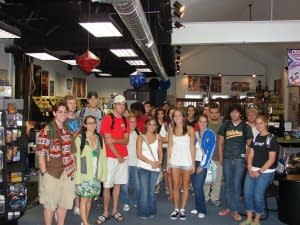
On tap for next week's column: The Tao of Comics. We'll be looking at why comics are important, and why they deserve study. We'll also be looking at the difference between comic books and comic strips (as well as the difference between comic books and graphic novels). We'll also be laying down the chronology for comics that we'll use during the class. All of these topics are intended to create an intellectual framework for students (things that I think are particularly important) as we dive deeper into the minutia of comic book history in future lectures.
In the meantime, check out the course website and read what the students are writing about their weekly books. You can also follow me on Twitter where I'll be tweeting updates on the class (as well as my other classes and my exciting life as an academic…huzzah!)
Assistant Professor Ethan Watrall
Michigan State University







